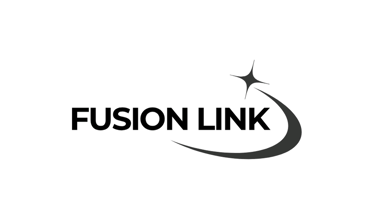Procurement Challenges in Vietnam in 2025
2/17/20253 phút đọc


Vietnam has emerged as a pivotal manufacturing hub in Southeast Asia, attracting global companies seeking cost-effective and high-quality sourcing solutions. However, as the nation continues its rapid development, procurement professionals face new challenges in navigating the evolving landscape. Here are the top procurement challenges in Vietnam in 2025 and strategies for businesses to address them.
1. Regulatory Compliance & Policy Changes
Vietnam's trade policies and regulatory frameworks are continually evolving to align with international standards and sustainability goals. New tax policies, import-export regulations, and environmental requirements can create complexities for businesses. Staying abreast of these changes and ensuring full compliance is crucial to avoid legal risks and unexpected costs.
Fact: The Vietnam Steel Association has recently requested the government to impose tariffs on galvanized steel imports from China and South Korea to protect domestic production, highlighting the dynamic nature of trade regulations.
2. Supplier Reliability & Quality Control
Vietnam hosts a vast array of suppliers, but not all meet the stringent quality standards required for international markets. Ensuring supplier reliability, conducting thorough audits, and maintaining consistent quality control processes are essential to prevent production delays and defective products.
Fact: In 2024, approximately 80% of businesses reported moderate to severe disruptions, particularly in long-haul transport, due to stricter driving regulations, underscoring the need for reliable suppliers.
3. Logistics & Infrastructure Limitations
While Vietnam's logistics network has improved, challenges such as port congestion, inefficient transportation systems, and rising shipping costs still pose risks to procurement operations. Businesses must plan for potential disruptions, optimize inventory management, and collaborate with reliable logistics partners to minimize delays.
Fact: Shipping container costs from Asia to Europe surged by 20% in the first half of 2024, impacting logistics expenses for Vietnamese exporters.
4. Rising Labor & Production Costs
Vietnam has long been known for its competitive labor costs, but wages are rising due to economic growth and increasing demand for skilled workers. Additionally, fluctuations in raw material prices impact overall production costs. Companies need to explore automation, strategic sourcing, and cost-efficient manufacturing processes to remain competitive.
Fact: Vietnam plans to revise its GDP growth target for 2025 to at least 8.0%, driven by stronger industrial manufacturing, which may lead to increased labor demand and wages.
5. Sustainability & ESG Compliance
As global demand for eco-friendly and ethically sourced products grows, businesses must adapt to stricter sustainability and Environmental, Social, and Governance (ESG) standards. This requires sourcing from environmentally responsible suppliers, reducing waste, and ensuring fair labor practices throughout the supply chain.
Fact: Vietnam is intensifying efforts to advance digitalization and accelerate its green transition, aligning with global sustainability trends
6. Supply Chain Disruptions
Global uncertainties, geopolitical tensions, and market fluctuations continue to affect supply chain stability. Disruptions in raw material supply, changing trade agreements, and demand volatility require businesses to build resilient procurement strategies, including diversifying supplier networks and implementing risk management plans.
Fact: Vietnam's exports are navigating new challenges and opportunities in 2025, with numerous uncertainties arising in the global market, especially due to new policies from major trading partners.
7. Technology Adoption & Digitalization
Many local suppliers still rely on traditional manufacturing and procurement processes, making integration with modern supply chain technologies challenging. Companies aiming to improve efficiency must invest in digital procurement solutions, automation, and data-driven decision-making to stay ahead in the competitive market.
Fact: Vietnam's economic outlook for 2025 is highly positive, with a push for digitalization and sustainability, indicating a favorable environment for technological advancements in procurement.
Addressing These Challenges
To navigate these procurement challenges, businesses should:
Stay Informed: Regularly monitor policy changes and trade regulations to ensure compliance.
Enhance Supplier Management: Conduct rigorous supplier vetting and quality control assessments.
Optimize Logistics: Plan logistics effectively and partner with reliable transportation providers.
Implement Cost-Saving Strategies: Explore automation and lean manufacturing to mitigate rising costs.
Prioritize Sustainability: Integrate ESG compliance into sourcing decisions.
Build Resilience: Develop a diversified supplier network and robust risk management plans.
Invest in Technology: Adopt digital procurement tools to streamline operations.
By proactively addressing these challenges, companies can strengthen their procurement strategies in Vietnam, ensuring long-term success in an evolving global market.
Are you facing procurement challenges in Vietnam? Connect with us to explore tailored supply chain solutions!
Fusion Link Supply Chain Solutions
Vietnam warehouse: Vietnam Warehouse: 237/4/36 Hoà Bình, Hiệp Tân, Tân Phú
China warehouse: No. 3, Pintu Logistics Park, Hetang Road, Jingtang Huadong Town, Huadu District, Guangzhou, Guangdong
CONTACT US
alyssa@fs-sourcing.com
(+84) 938 26 8813
© 2025. Fusion Link
Wechat: alyssangn
